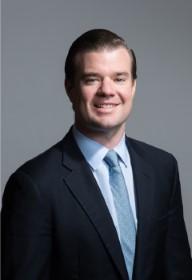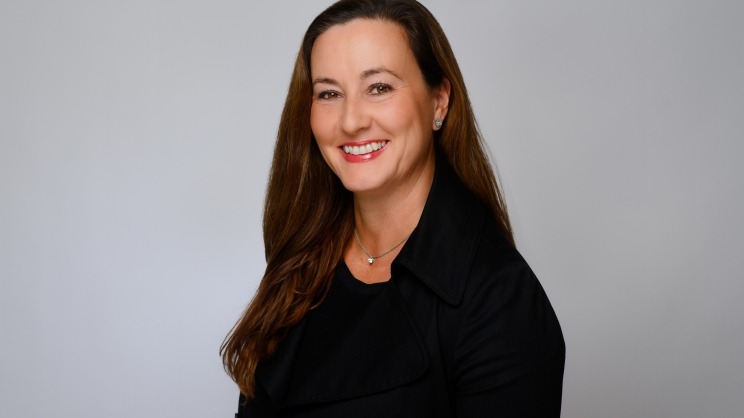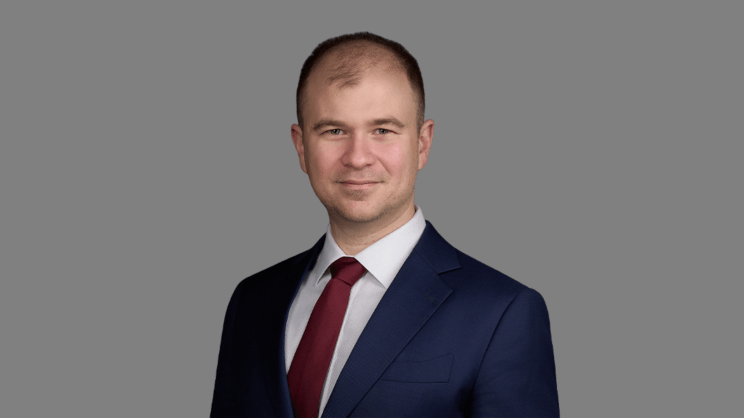Alumni Spotlight: Hugh Carey II

A Former Senior Director’s Perspective on Professional Development and Leadership During Uncertain Times
Hugh Carey II, a former Senior Director with Alvarez & Marsal’s (A&M) Healthcare Industry Group (HIG) from 2011-2022, is currently President and CEO of ProSmile and Executive Chairman of SmartArches, a multispecialty dental service organization based in New Jersey.
In the following Q&A, Mr. Carey shares insights from his time at A&M, reflecting on the challenges faced during the COVID-19 pandemic and his transition to leadership roles at ProSmile and SmartArches. He discusses the importance of collaboration and positive thinking in navigating obstacles and fostering organizational growth. Drawing from personal encounters, Mr. Carey imparts wisdom for future generations, all while acknowledging the profound impact of his grandfather, former New York Governor Hugh Carey, whose enduring legacy continues to shape his journey.
You were with A&M from 2011 to 2022 in the Healthcare Industry Group (HIG). Can you share a notable memory you have of your time at A&M?
During the COVID-19 pandemic in 2020, a challenging period unfolded for everyone. As we advised numerous companies, including those in healthcare where people were grappling with serious health issues and financial struggles, the gravity of the situation was profound. A&M and my colleagues in the HIG group became pivotal guides for clients seeking direction in these uncertain times. I distinctly recall a poignant phone call with the CEO of a health systems company, where we discussed the pressing need to deliver under immense pressure. This included ensuring enough funds to cover bills while navigating the company's response to the pandemic and the reality that people's lives were at stake.
The Value of Mentorship for Personal and Professional Development
Did you have any mentors during your tenure at A&M?
Bill Roberti, Martin McGahan and Joe Berardino each played pivotal roles in my professional development. Bill guided me into consulting, and Martin imparted invaluable lessons on working under pressure and the importance of restraint in communication. At the same time, Joe provided valuable insights into achieving a harmonious balance between life and work commitments.
What were your top three takeaways after working at A&M?
- Having the courage to do what's right involves recognizing tough decisions, accepting the consequences and understanding that it's part of the process.
- Seeking reinforcements means being open to asking for help when necessary, a step often overlooked.
- Prioritizing people means choosing to work with individuals you enjoy collaborating with and creating a supportive and enjoyable environment.
Can you share a particular obstacle or achievement that stood out to you while serving as the Interim CFO for a $300 million healthcare provider, especially considering the impact of COVID-19?
What stood out to me was the importance of positive thinking. During COVID, maintaining a positive outlook and offering hope were priorities. Fortunately, we were able to respond effectively, leveraging an occupational health company to facilitate employees' return to work. This experience taught me the significance of adaptability and perseverance, as we had to quickly create a new business model overnight. Being nimble and embracing change became essential lessons in navigating challenges successfully.
Can you share your journey and how you transitioned into your role as CEO at ProSmile?
A friend and fellow alumnus's wife, who works at a private equity (PE) firm, referred me for the role. The transition to working for an equity-backed company happened more swiftly than anticipated. Over my 12 years at A&M, I've cultivated relationships with former alumni and individuals I've met through the firm, and this network has been instrumental in building a strong team at ProSmile. Surrounding myself with people who know how to deliver results ensured a smooth transition into my new role.
How did your experience at A&M shape your approach to leadership and management at ProSmile?
It shaped everything for me, providing the tools, skills and experience necessary for the challenges I've encountered. My leadership style emphasizes collaboration, drawing on the team's ideas and expertise to make informed decisions collectively and lead by example. A key lesson from my time at A&M is that respect is earned through leadership.Top of Form
Best Practices for Fostering Collaboration, Talent Retention and Organizational Growth
What fundamental principles or strategies have you found most effective in fostering organizational growth and success at ProSmile?
Before I left, I discussed one crucial aspect with Bryan Marsal: instilling hope in employees. Fostering growth hinges on this fundamental belief that collaborative leadership and a supportive work environment led to success as a cohesive team. Ensuring we have the right people on board is paramount; we prioritize hiring and retaining top talent. Recognizing and rewarding their contributions along the way is integral, aligning incentives with our overarching mission.
What are the most significant challenges in the evolving field of dental support organizations?
Staffing is a top priority, particularly in recruiting dental assistants, hygienists and non-clinical support staff. Workforce development remains paramount amid the evolving landscape of medical and dental connections, transitioning towards increased collaboration with healthcare organizations. This shift underscores the growing awareness of the mouth-body connection, with dentists now tasked with broader responsibilities and a greater emphasis on the link between oral health and overall well-being.
In your opinion, what makes a great CEO?
I learned from John Suckow that the greatness of a leader, whether a Managing Director, CEO or anyone else, is not solely defined by personal achievements but by the accomplishments of those they lead. This lesson in humility has stayed with me, highlighting the vital role of employees in one's success. Whether it's offering upward mobility from receptionist to hygienist or advancing from office manager to regional vice president, fostering growth opportunities is key. Ultimately, a great CEO's legacy is reflected in the trajectory of their employees within and beyond their organization.
Tell us about your ability to work under pressure.
Having a plan is essential, but it's important to acknowledge that plans don't always unfold as expected. Patience is key, allowing for adjustments and pivots when working under pressure. Without a plan, it's easy to become disoriented and overwhelmed in challenging situations.
What drives you to succeed, and who or what inspires you?
My wife and my kids.
Please share your experience serving as Vice Chairman of the Jacob K. Javits Convention Center of New York.
One of my most fulfilling roles is my 11-year tenure at the Javits Center. From managing boat shows to transforming it into a hospital during COVID and later a vaccination center, I've witnessed significant change and improvement. With thousands of employees and millions of visitors annually, it's been a rewarding experience. Being appointed by the Governor early in my career was a notable achievement, and serving on the board has provided me with the opportunity to contribute to the agency's financial turnaround. I thoroughly enjoy being part of this government agency and giving back through my board appointment.
What inspired your decision to join the board of directors for Catholic Guardian Services (CGS) as a Board Member of Lighthouse, and in what ways does your role contribute to advancing the organization's mission?
During my 10 years at A&M, I gained experience in various departments of health, particularly focusing on intellectual and developmental disabilities. CGS, a nonprofit organization in New York, prioritizes foster care and support for individuals with these disabilities, aligning with my personal values. Drawing from my A&M experience, I've contributed to guiding CGS through the post-pandemic period, presenting a fulfilling opportunity to give back.
Lighthouse is a sober living facility located in Connecticut. While at A&M, I worked with a client who operated a substance abuse facility, and I've been able to apply those learnings to benefit Lighthouse. I choose not to drink, and I have come to realize that abstaining from drinking doesn't impede success. Despite the common belief that drinking is necessary for business or teamwork, I've found it to be unnecessary. Moreover, avoiding hangovers can enhance productivity in the workplace.
Being on multiple boards requires effective balancing. How do you manage your involvement and prioritize responsibilities across these different roles?
I extend my thanks to Joe Berardino who advised me not to sit on more than two boards at a time. Effective communication is crucial; it facilitates understanding between stakeholders and clarifies responsibilities, whether in work or family matters. With effective communication, many tasks can be accomplished efficiently.
We hear that ice cream is your favorite thing. Do you have a go-to flavor, or are you an adventurous ice cream enthusiast?
My go-to flavor is mint chocolate chip.
How would you describe your sense of humor?
Light-hearted and fun. If you can’t laugh at yourself, then you shouldn’t laugh at all. I bring my humor into the workplace and try not to take life so seriously.
You met your wife on a blind date. How has this influenced your perspective on relationships and chance encounters?
Everything happens for a reason, and there's excitement in the unknown. Embracing this uncertainty means saying yes, leading to new revelations. As Ferris Bueller said, life moves fast, and sometimes, we need to pause and look around. Staying open to new experiences, meeting new people and saying yes has always worked out for me.
I can't emphasize enough the importance of reaching out and meeting with people, whether they're alumni or acquaintances. Keeping an open mind and saying yes can lead to incredible opportunities. Just like my daughter enjoys her "yes days," embracing new experiences and connections can bring unexpected joy.
How does it feel to carry the name of someone with a significant impact on your family and in politics/public service?
It's a tremendous honor to fill the large shoes left by my grandfather, Hugh Carey. His legacy, including having the Brooklyn Battery Tunnel renamed after him, serves as a source of immense pride. His teachings emphasized action over words, urging us not to overthink and to keep things simple. He instilled in me the value of listening and learning, even from a young age, as I accompanied him to important events and meetings. Despite his humility, he was a charismatic figure who cared deeply about everyone he encountered. His belief in simplicity, faith and family has profoundly influenced both my personal and professional life.
One of the most significant lessons I learned was encapsulated in his campaign slogan: "Before they tell you what they're going to do, have them show you what they've done." It's a philosophy I've always adhered to—getting things done without unnecessary chatter.
Another crucial lesson was not to overthink, both in business and in life. Overthinking can hinder progress. It's not about not thinking at all, but about not dwelling excessively— keeping it simple often leads to positive outcomes. This mindset has guided me through both work and life.
Can you share some fond memories you have of your grandfather?
At the age of eight, I accompanied him to the White House for meetings with important people. He always brought me along, not to speak, but to listen and learn.
My grandfather loved attending my football games at Union College. At one game, the crowd was cheering “Go U” with such enthusiasm that he mistook it for “Go Hugh,” prompting him to enthusiastically wave his hat to everyone.
And then there was my senior thesis in college—a biography on him, aptly titled "Hugh on Hugh." When I informed him about it, he doubted my writing abilities, insisting that I wasn't one. Refusing to provide much information initially, he only opened up after I started speaking to his friends. He told me he wanted to ensure I was getting the stories right. He's been a pivotal figure in my life, with his unwavering faith and dedication to his large family of 14 kids, ensuring that he always made time for everyone, including my numerous cousins.
Governor Carey was known for handling NYC's economic crisis in the 1970s. How do you see his approach reflected in your problem-solving skills?
He believed that by surrounding yourself with individuals smarter than yourself and fostering collaboration within the team, you could accomplish anything. This is a principle I learned both from my grandfather and during my time at A&M.
What words of advice would you share with the next generation?
Stay curious, have fun and say yes.
Is there anything we didn’t ask that you would like to share?
I'm grateful to A&M, especially Bryan Marsal and Tony Alvarez, for shaping me into who I am today. Looking back on my time at A&M fills me with fondness, and I'm thankful for the opportunities it provided. My journey to where I am today is a testament to the impact of A&M, and I am truly grateful.




